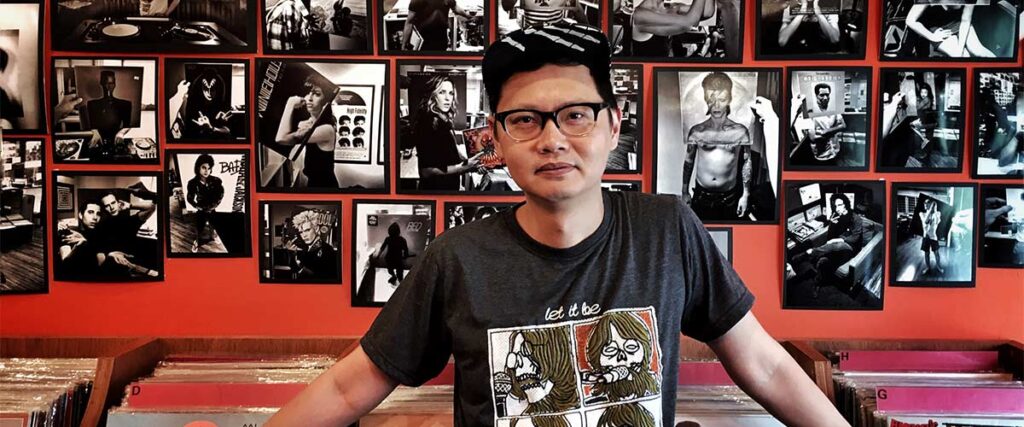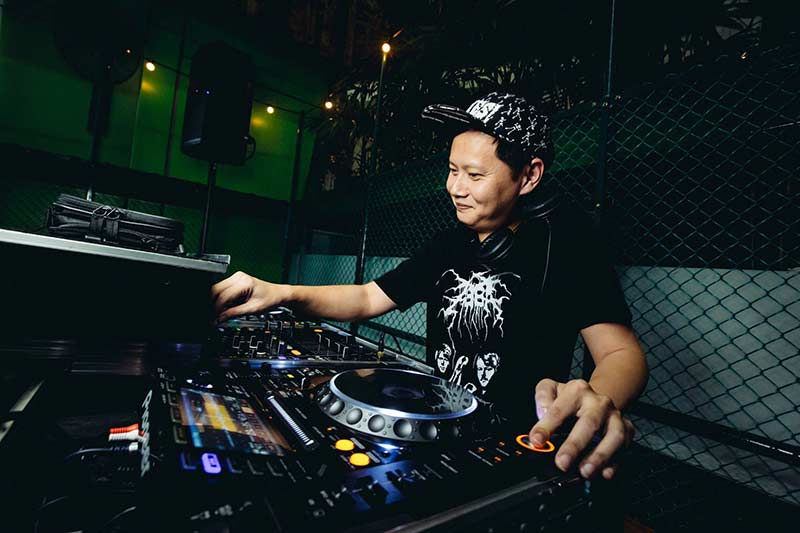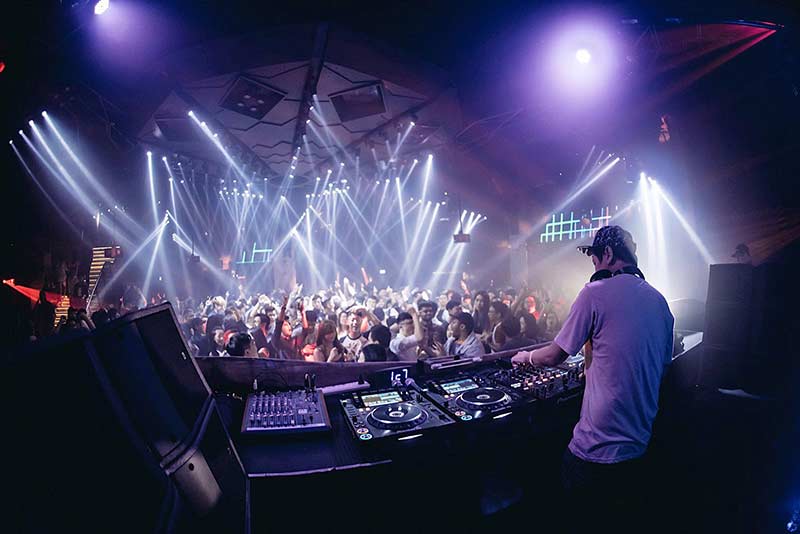From spinning records to drumming for local bands, Robin Chua tells us his life story as DJ KiDG. Having able to withstand changes in Singapore’s music scene, Robin Chua discusses insights that no one has in this industry. Find out how Robin Chua conquer the music industry.
Robin Chua is a DJ of reputation who regularly spins the decks for the very best of indie pop at Eatmepoptart. With the stage name of DJ KidG, he’s a man of many talents with different musical interests. From white boy funk to soul, to mind-warping electronics, Robin plays an eclectic set that always attracts a good crowd.
As Robin steps into the art scene with his ongoing sleeveface project, where he brings vinyl record covers to life. He shares his encounters with vinyl records and the inspiration behind his creations.
Video killed the radio star, and now digital is apparently taking over the analog world, but there’s been a resurgence recently in Singapore of vinyl record stores. What’s your take and theory behind this resurgence?
I think it’s great and I definitely love how folks are getting back into buying music physically. I’ve always felt that the music connects with the listener more when he or she buys it in a tangible form, rather than just streaming it off the Internet. With vinyl, you get more than just the music; you also get to see the artwork of the cover on a much larger scale. And in most cases, the music does sound a whole lot warmer and better when played on vinyl.
Nowadays we all subconsciously feel this need to be engaged physically & mentally. A lot of things we are living with tend to have this disposable feel to it. Maybe that’s why more people are being drawn back to listening to music on records because that was how it was way back in then. You put on a record and listen to the music attentively. As a result, it’s a form of escape that you can indulge in that takes you away from the daily routines of the modern world.
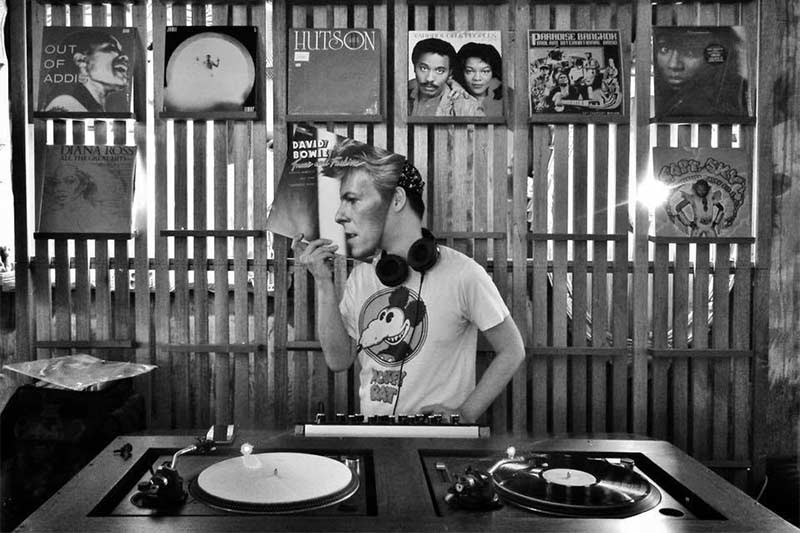
Vinyl records obviously offer an auditory experience, but you’ve taken a spin on the experience of vinyl records by focusing visually on the record art. What inspired you to start the Sleeveface project?
I started on this more as a laugh to entertain my friends who visited me when I was working at the Hear Records outlet at Burlington Square. From there, it just sprung forth into a casual series where I would post these shots via my own Instagram account. I like how most of these shots made people laugh, which is good enough for me.
As far as inspiration goes, I would usually shoot with what albums are available at the store. Sometimes I would try to remember how these album covers are like so that I can always capture the right opportunities. For example, I can quickly pull it out for a shot when the right folks come in with the right clothing.
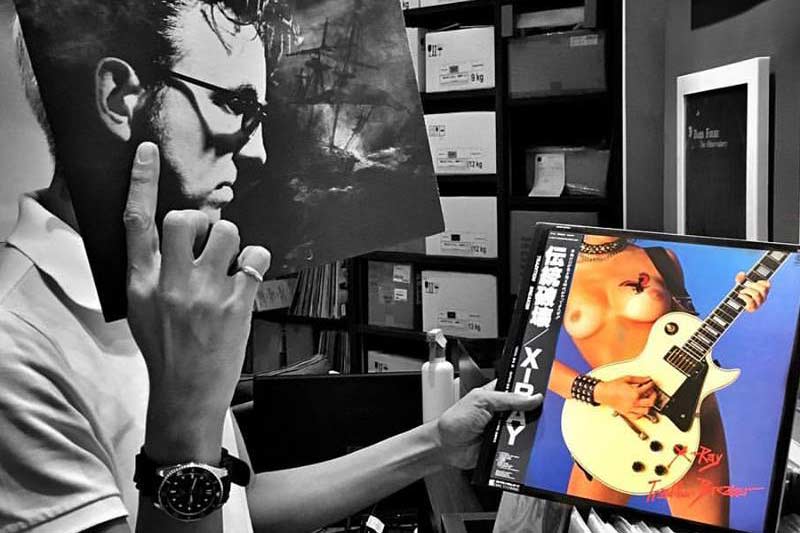
You’ve been in the music scene for quite a long time – from selling cassettes at Supreme Records to drumming for local bands such as Shelves. Can you take us through your musical journey – where did you start and how did you end up DJing?
My fixation with music started from working at Supreme Records during my holidays. I also started getting into the local music via reading BigO magazine and playing in my first local band that was Livonia. Right after NS, I worked at HMV Singapore for 5 years and when I left, I was craving for the same music environment. That led me to make mixtapes and posting them online, which eventually got me into DJing. I think whatever I do, I just can’t stay away from music. It’s one of the driving points in my life.
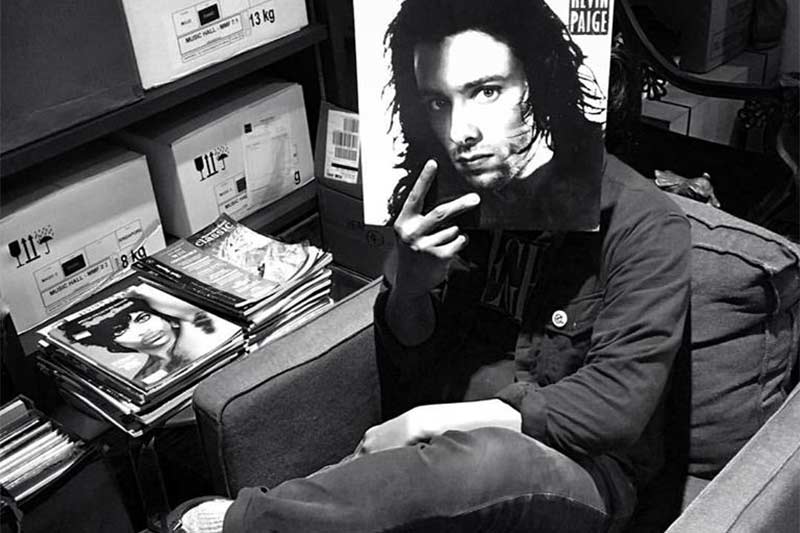
You play an eclectic mix from retro funk to soul to hip-hop – a mix of yours even included some Hokkien songs. Who is your biggest musical influence?
I love many types of music, so it’s tough to do a mix that’s strictly sticking to one particular genre. In terms of inspiration, I would rate David Holmes as my No.1. It would be lovely to be able to pick his brains on music, or even take a look at his rare collection of records.
What is your favourite part about how the local music scene changed over the years? Do you have any wild stories to share?
I think there’s now more reception to homegrown music, compared to back then. The bands and audience have also become more proficient and better-looking (laughs). Not only is there an emphasis on great sound but to be visually appealing too. The earlier days tend to see bands that are more rudimentary compared to now, but I think that’s where the charm lies. There was this sense of innocence and rawness that can’t be replicated now as too many stuff are either too conjured up or curated.
As far as wild stories go, I don’t recall that many but I do remember the earlier gigs at The Substation being chaotic. There would be fights, slam-dancing and if the band sucked, the audience would boo them off very loudly. Not many bands survived that period but they developed more grit after that. It was a vibrant scene, and I am very glad to live through that.
Details
Date: 28 July 2017
Address: the Hive Singapore, 59 New Bridge Road, Singapore
Tel: +65 6532 2119
Price: SGD$5
Book tickets here
Find out more on:
Facebook | Instagram | Mixcloud
Related Articles
Classical Music Tracks to Boost Your Work Productivity
